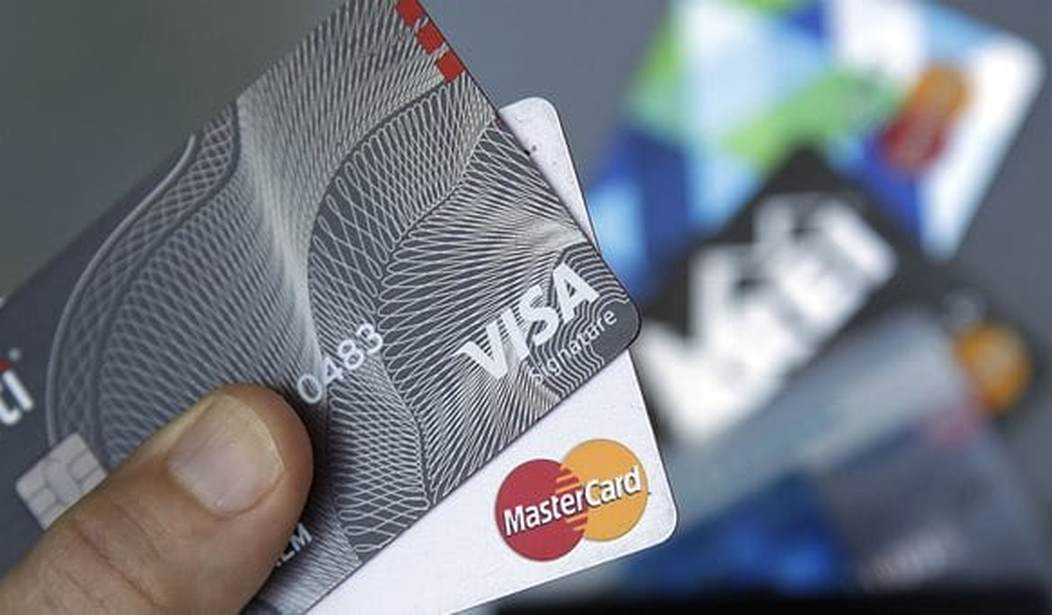There is currently, in the United States Senate, legislation being considered that would amend the Truth in Lending Act to cap all credit card interest rates, including fees and charges, to 10 percent. This may seem like a great idea to some, especially those with a lot of credit card debt, but this legislation, favored by (among others) the daffy old Bolshevik Bernie Sanders (I-VT), would very likely do more harm than good. R Street's Caroline Melear has this to say:
It is clear that regulation often has unintended consequences, and in financial services and lending, this frequently comes at the expense of individuals or issues that the regulations purport to help. With both the CCCA and credit card interest rate caps, a variety of negative second order effects are obvious and clear as evidenced by similar regulatory controls of the past. Most notably, consumers are far more likely to be harmed when the government feels the need to reduce consumer choice and access to credit through bureaucratic controls instead of allowing free market forces to guide outcomes. It would be a mistake for Congress to allow these amendments to weaken an otherwise strong bill.
As of this writing, the average APR on a credit card is 28.67 percent.
See Also: Bad Examples, Bad Legislation: Alaska's Short-Term Interest Rate Cap Not Dead Yet
Alaska Legislature Attempting Inadvisable Usury Law - Coming Soon to a State Near You?
The past efforts Caroline Melear mentions include the ill-advised Dodd-Frank Act, which she cites as evidence:
Much of this is evidenced by the real-world impacts of similar price controls placed on debit cards as part of the Durbin amendment Dodd-Frank act. Since then, access to free and reduced fee checking has been dramatically reduced, debit card rewards programs are a thing of the past, and consumers never saw any fee savings. In fact, twenty-two percent of retailers raised prices on goods and services as evidenced by research from the Federal Reserve Bank of Richmond.
Yes, credit card interest rates are high, but there are a couple of problems with forcing them down by government fiat.
Even consumers with the best credit rating will likely lose access to short-term credit in the form of credit cards, were this to become law. The consequences of the Durbin amendment were bad, and this one would be as well, not to mention the fact that Congress has no business meddling in the financial decisions of the citizenry. People in poorer areas of the country would - I know this is a cliche, but even so - be hardest hit, as many of them depend on short-term credit when in a tight financial spot. Credit card interest rates are generally tied to credit ratings, as well. As an experiment, I looked up my own credit rating (802) and looked at the interest rate I would pay on any balance on the one credit card we keep, that being a tad short of 20 percent. There can be no doubt that were the credit score were lower, the interest rate would be higher.
There is a fundamental law of the universe here, which I will call Clark's Law of Bolshevik American Economics, which states, "Any legislation touted by Bernie Sanders as good for the American economy will have the opposite effect than claimed."
It's unlikely that this amendment will get the votes to pass, and that's a good thing. Markets are messy. But left to themselves, they usually get things right in the end.
Every single day, here at RedState, we will stand up and FIGHT, FIGHT, FIGHT against the radical left and deliver the conservative reporting our readers deserve.
Help us continue to tell the truth about the Trump administration and its major wins. Join RedState VIP and use promo code FIGHT to get 60% off your membership.














Join the conversation as a VIP Member